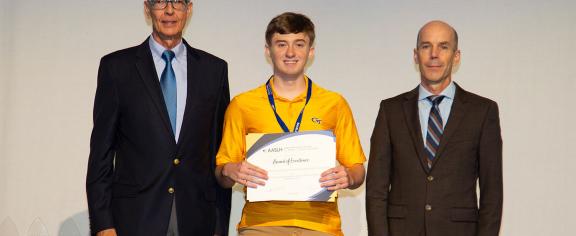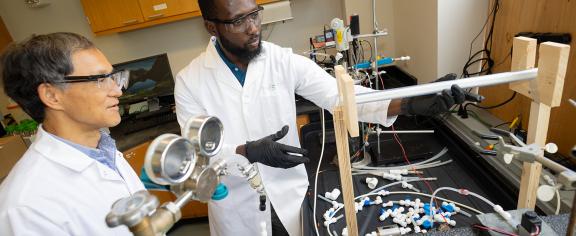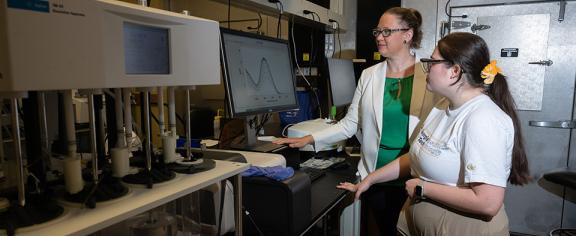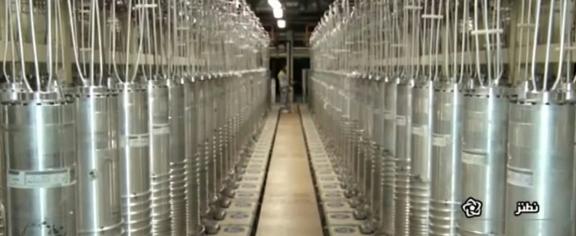2025-07-11
Georgia Tech students received the 2023 Award of Excellence from the American Association of State and Local History for the Coffee County Memory Project
2025-07-10
A new study shows how the material made from leaves and branches that collect on forest floors can be mixed with local soil to filter out road grime before it reaches waterways.
2025-07-08
The dashboards highlight significant achievements in joint research, funding, and innovation, demonstrating each partnership’s commitment to addressing critical global challenges.
2025-07-08
Engineers use sodium bicarb to “self-pressurize” a pill able to deliver drugs that usually require injection directly to the small intestine.
2025-07-03
Shriners Children’s will open a $153 million pediatric medical research facility at Science Square, becoming the largest tenant in the development and contributing to Georgia Tech’s growing role in Atlanta’s life sciences sector.
2025-07-01
When U.S. forces attacked Iran’s nuclear facilities on June 21, 2025, the main target was metal tubes in laboratories deep underground. The tubes are centrifuges that produce highly enriched uranium needed to build nuclear weapons.
2025-06-30
A new report offers other steps to the Federal Aviation Administration to address a nationwide shortage of the critical staffers.
2025-06-27
Nearly half of Americans, both Democrats and Republicans, question whether elections are conducted fairly.
2025-07-01
By uniting experts across disciplines, Georgia Tech is positioning itself at the forefront of neuroscience and space research.
2025-06-30
Bill Dracos Named Georgia Tech’s Chief Research Operations Officer








